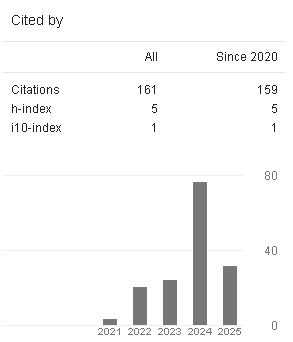Ulama al-Sū’ Dalam Perspektif Ulama Hadis dan Imām alGhazālī: Analisis Perbandingan
Keywords:
ʿUlamā’ al-Sū’, Status Hadis, Imām al-Ghazālī, Ihyā’ ʿUlūm al-Dīn, Hadis’s StatusAbstract
Penglibatan seseorang ilmuwan Islam dalam arena politik dan pemerintahan negara boleh mengakibatkan seseorang ilmuwan mendapat tohmahan dengan gelaran seperti ʿulamā’ al-sū’, ulama jahat dan sebagainya. Bukan itu sahaja, kenyataan-kenyataan seseorang ilmuwan yang tidak menepati kehendak masyarakat juga akan menyebabkan para ilmuwan ditohmah dengan pelbagai gelaran yang buruk. Justeru itu, kajian penelitian terhadap istilah ʿulamā’ al-sū’ perlu dilaksanakan bagi memahami hakikat istilah ini. Ini bertujuan agar istilah tersebut tidak disalahgunakan sewenangnya untuk menghukum ilmuwan tertentu sebagai ulama jahat dan yang berkaitan dengannya. Selain itu, tujuan kajian ini juga untuk mengetahui hubung kait antara ʿulamā’ al-sū’ dengan pemerintahan atau politik negara. Dengan menggunakan
kaedah kajian kepustakaan, kajian ini dimulakan dengan mengenal pasti akan status hadis yang berkaitan dengan ʿulamā’ al-sū’ melalui kaedah takhrij hadis serta kajian ke atas sanad hadis. Seterusnya, pemerhatian terhadap kitab-kitab syarah hadis dan kitab Ihyā’ ʿUlūm al-Dīn karya Imām al-Ghazālī dilaksanakan bagi mendapatkan ketepatan data dan keputusan kajian. Menurut Imām al-Ghazālī ʿulamā’ al-sū’ adalah mereka yang mempergunakan ilmu untuk mendapatkan kesenangan dan kemewahan dunia semata dan tidak semestinya seseorang ilmuwan itu menyesatkan. Bahkan, tidak lazim juga apabila seseorang ilmuwan mempunyai kedudukan dalam pemerintahan atau terlibat dalam politik negara akan menatijahkan sebagai ʿulamā’ al-sū’. Berbeza pula dengan ulama hadis yang melihat ʿulamā’ al-sū’ sebagai ilmuwan yang menyeru masyarakat kepada kesesatan dan kefasikan.
Kata kunci: ʿUlamā’ al-Sū’; Status Hadis; Imām al-Ghazālī; Ihyā’ ʿUlūm al-Dīn
The involvement of an Islamic scholar in the political arena and the country's governance can result in the accusation of a scholar with titles such as ʿulamā 'al-sū', mischievous scholars and so on. Not only that, the statements made by the scholars which do not meet the needs of society will also lead to various name-calling. Therefore, a research study on the term ʿulamā ’al-sū’ needs to be carried out to understand the reality of this term. This is to ensure that the term is not misused arbitrarily to punish certain scholars as mischievous and those associated with them. In addition, the purpose of this study is also to find out the relationship between ʿulamā 'al-sū' with the government or politics of a country. Using the method of library research, this study began by identifying the status of hadis related to ʿulamā 'al-sū' through the method of takhrij hadis as well as the study of the sanad of hadis. Next, observations on the books of hadis syarah and the book of Ihyā ’ʿUlūm al-Dīn by Imam al-Ghazālī were carried out to obtain the accuracy of the data and the results
of the study. In conclusion, according to Imām al-Ghazālī ,ʿulamā ’al-sū’ are those who use knowledge to obtain worldly pleasures and luxuries alone and not necessarily mark the scholar as misleading. In fact, it is not uncommon for a scholar to have a position in government or to be involved in national politics to be claimed as ʿulamā ’al-sū’. In contrast, hadis scholars see ʿulamā ’al-sū’ as a scholar who calls society to misguidance and wickedness.
Keywords: ʿUlamā’ al-Sū’; Hadis’s Status; Imām al-Ghazālī; Ihyā’ ʿUlūm al-Dīn
Downloads
References
Al-ʿAsqalānī, A. A. (2009). Taqrīb al-Tahdhib. Tahqiq: Muḥammad ʿAwwamah.
Al-Dārimī, A. A. (2013). al-Musnadul Jāmiʿ. Tahqiq: Nabīl bin Hāsyim. Beirut: Dār al-Basyā’ir al-Islāmiyah.
Al-Fayyūmī, A. M. (2021). al-Miṣbāh al-Munīr. Tahqiq: Ayman ʿAbd al- Al-Fayyūmī Razzāq. Dār al-Fayhā’.
Al-Ghazālī, A. H. (2020). Ihyā’ ʿUlūm al-Dīn. Tahqiq: ʿAli Muḥammad Muṣṭafa. Syria: Dār al-Fayhā’.
Al-ʿIrāqī, A. R. (2021). Ikhbār al-Ahyā’biAkhbār al-Ihyā’. Tahqiq; Hisyām bin al-Hāsyimī. Beirut; Dār Ibn Ḥazm.
Al-Mubārakfūrī, U. M. (1985). Mirʿātul Mafātīh Syarah Misykātul Maṣabīh. India: Jāmi’ah Salafiyah.
Al-Munāwī, Muḥammad ʿAbd al-Ra’ūf. (1971). Fayḍul Qadīr. Mesir: Maktabah al-Tijāriyah al-Kubrā.
Al-Qurṭubī, M. A. (1964). al-Jāmiʿ li Aḥkām al-Qurān. Mesir: Dār al-Kutub al-Miṣriyah.
Beirut: Mu’assasah al-Risālah.
Dār al-Minhāj.
Ibn Ḥanbal, A. (2001). Musnad Imām Ahmad. Tahqiq: Syuʿayb al- Arnaʿuṭ.
Kumpulan Bahasa Arab. (2011). al-Muʿjam al-Wasīṭ. Mesir: Maktabah al-Syurūq Al- Dawliyah.
Pramasto, A. (2020). Analisis Etika Ilmu Pengetahuan dalam Kitab Hidayatus Salikin Karangan Al-Palimbani Abad Ke-18. Jurnal Dimensi, 9(1), 125-134.
Wazis, K. (2019). Dinamisasi Pesantren Perspektif KHAS dalam Konstruksi Majalah Pesantren Tahun 1985. Jurnal Al-Tatwir, 6(2), 17-32.
Witro, D. (2020). Ulama and Umara in Goverment of Indonesia: A Review Relations of Religion and State. Madania: Jurnal Kajian Keislaman, 24(2), 135-144.
Downloads
Published
How to Cite
Issue
Section
License

This work is licensed under a Creative Commons Attribution-NonCommercial 4.0 International License.












